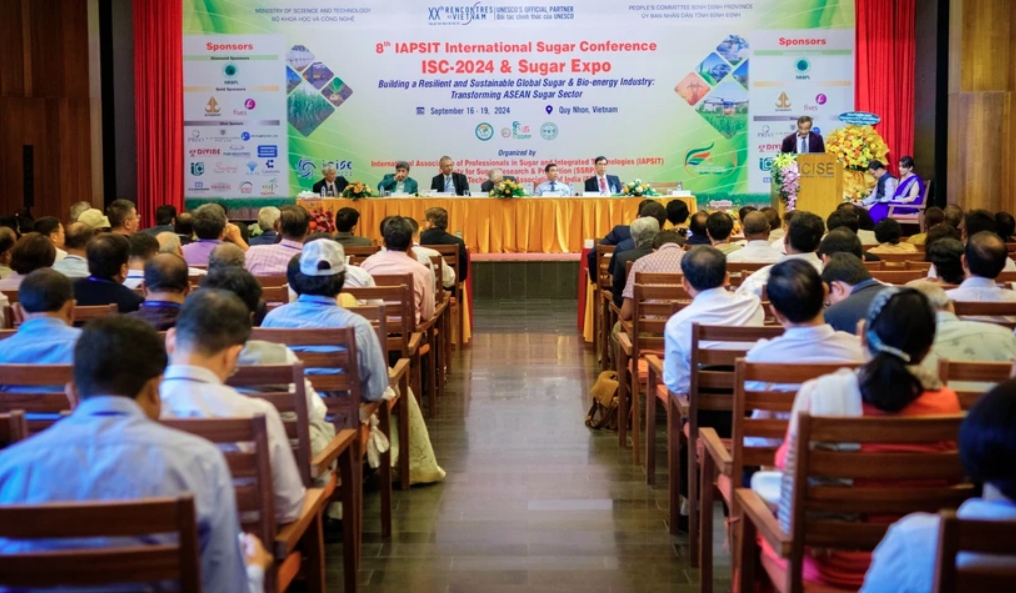IAPSIT International Sugar Conference kicks off in Binh Dinh
The 8th IAPSIT International Sugar Conference convened on September 16 in Quy Nhon city in the central coastal province of Binh Dinh, bringing together nearly 200 delegates from India, China, Thailand, Fiji, the Philippines, the US, and Vietnam.
Lasting four days, the event was co-organised by the “Rencontres du Vietnam” Association, the International Centre for Interdisciplinary Science and Education (ICISE), the International Association of Professionals in Sugar and Integrated Technologies (IAPSIT), and the Society for Sugar Research and Promotion (SSRP).
Participating delegates are set to discuss issues relating to the sustainability of the sugarcane industry in the Association of Southeast Asian Nations (ASEAN) region and the imminent risks posed by climate change and erratic weather patterns.
Discussions will centre around leveraging technological innovations in fields such as bioenergy, green harvesting, carbon storage, climate-resilient crop varieties, and 4th-industrial-revolution-induced agricultural technologies. According to the organisers, the conference aims to propose bio-refinery models as a sustainable direction for the industry.
Speaking at the event, Nguyen Huu Ha, deputy director of the Binh Dinh Department of Science and Technology, noted that the conference provides a valuable opportunity for domestic and international scientists and businesses to exchange experiences, update the latest sci-tech advances, and explore cooperation and market expansion opportunities.
SSRP President Dr. Sushil Solomon highlighted that organising the conference represents a significant effort to foster comprehensive technological cooperation.
He said agriculture plays a vital role in ASEAN nations, with eight out of the 10 members relying heavily on farming and relating activities. Sugarcane, in particular, is one of the region's key crops, covering nearly 2.8 million hectares and contributing around 10% of the world’s sugar production.
Solomon also shared insights into green technologies in sugarcane management, precision agriculture, integrated pest and disease management, crop monitoring, and the use of organic and biological fertilisers, among others. These advancements, he said, could reduce the environmental impact and boost crop productivity, especially in countries like Vietnam, the Philippines, Indonesia, Cambodia, and Myanmar.
He stated that by promoting cooperation, embracing technological advances, and prioritising sustainability, ASEAN states can maximise the potential of their sugar industries while maintaining high productivity levels, thus making significant contributions to regional economic development and food security.


